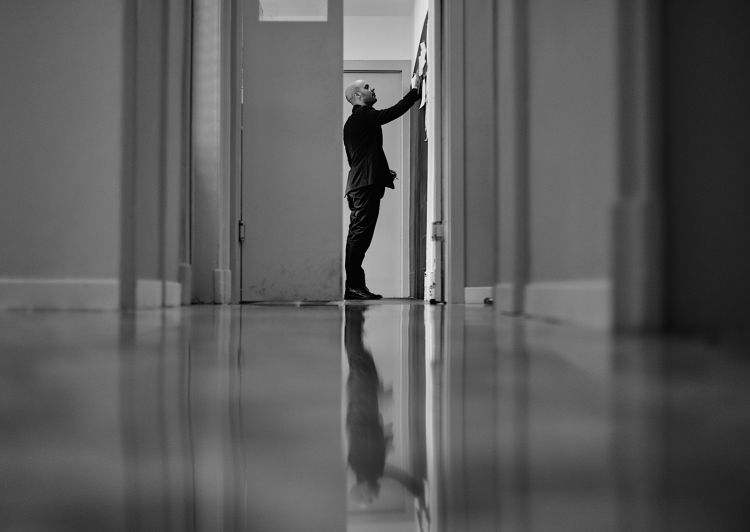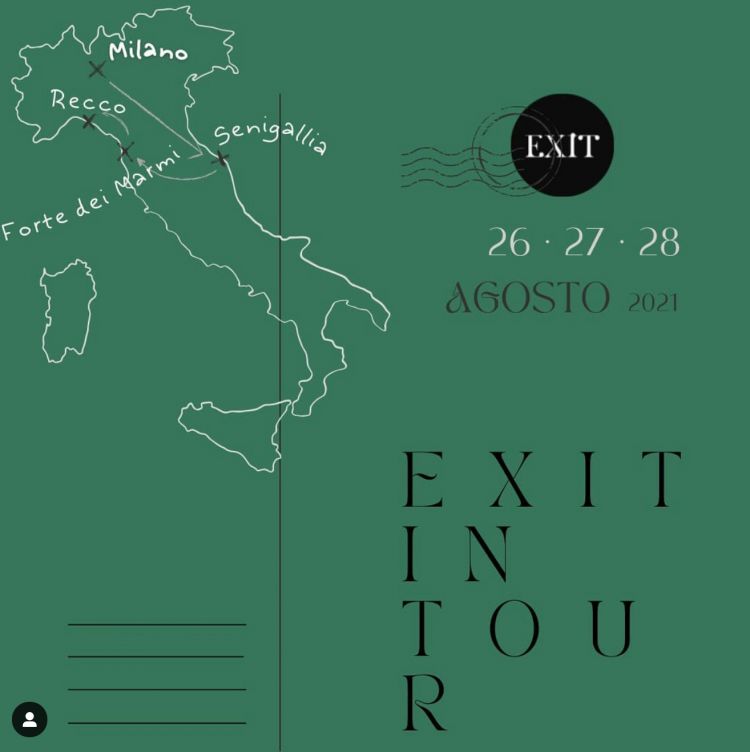The theme of the congress of Identità Golose is Building a New Future: Work. For some time now, Matias Perdomo, co-author of the emblem dish of the 16th edition, has been considering what takes to make his profession more sustainable.
It's been happening at least since the 1st of September 2015: 6 years have passed since when, together with Simon Press and Thomas Piras, he opened Contraste, a success story in the recent past of Milan: ever since the beginning, you'd have to call 5 months in advance to find a table over the weekend. Over the years, the trio has also added Exit, Empanadas del Flaco, Roc, Exit Pastificio, Abere to their business. A more and more complex business structure which in these days of reopening must deal also with a common problem: staff is running away. We've discussed this with the Uruguayan chef.
Why has it become hard to find cooks and waiters now?
I don't think it's because young people are less interested in this career than in the past. I think that for many of them their expectations weren't met. Mostly because television shows them the goal, but not the journey it takes to get there. Young people leave school at 18 and at 23 they expect to be chefs. But there are no shortcuts in the kitchen. Before they became cooks, Bottura, Cannavacciuolo and Cracco worked hard for 20 years. If today they are incredibly skilled, it's because they learnt the ropes for a long time. Like Marcel Jacobs before winning the gold medal in Tokyo.
How can we face this issue?
By starting from the beginning. Over the past few years there have been more cooking schools opening than restaurants. They ask uncertain kids to pay for the course, and then send them in the starred restaurants of their dreams. We, as the last link in the chain, are forced to get interns at their very first experience. This wasn't the case in the past: doing an internship at
Mugaritz was an almost impossible dream. Today everyone can do anything. But a freshly graduated doctor won't perform a surgery; a brand-new architect won't be allowed to design a house right away. Apprentice cooks should first work in restaurants that serve 200 guests, and see if they can stand it. That's what we all did in my generation. We should stop giving this sweetened image of the profession, creating illusions. Restaurants aren't a hobby.
It's also true that work is more hectic, and the salary is not always proportionate.
Yes, but if you want to work 8 hours you're not going to knock on my door. In our profession, you need to cook ragù at least for 4 hours. It takes an entire day to properly debone a lamb. And what if the pasta is boiling while your 8 hours are up during service? What shall you do? If that's what you think, you've chosen the wrong profession. I don't tell rubbish to my staff: you won't be a chef here, you won't get 3 stars and you won't be cook of the year. Here, you work a lot, and you work like this. Feeding people is an important job: it requires dedication, sacrifice, responsibility. We focus more and more on fake problems but lose sight of the main issue: restaurants are businesses, just like anything else.
What do you mean?
There should be a balance between people sustainability and project sustainability. The former is true if the latter is true. In other words: I'd be thrilled if everyone would have to work 8 hours, if I could count on two separate brigades, and give everyone 2'500 euros for 14 salaries per year. But this cannot be sustainable. It's not sustainable because the cost of work in Italy is exaggerated. Because taxes are disproportioned: if they close an eye on Microsoft and Amazon because they make a great contribution to Italian GDP, why don't they take care of restaurants too? Our joint contribution to GDP is not less important. We're important businesses but our important social and cultural impact is not acknowledged.

In the post-pandemic reorganisation, Contraste changed the traditional service shifts. It's now open on Monday evening, Thursday evening, and from Friday to Sunday both for lunch and dinner. In the photo, maître and business partner Thomas Piras
We're at the mercy of the weather: if it rains, many must cut down 50% of the seats, with no financial support. We're at the mercy of no shows, which can reduce the revenues of a night by 20%. Why is it that if you want to watch a football match or a concert, you're ok with spending 50 or 100 euros one month and a half in advance, but you won't do this with a restaurant? So we buy raw materials, cook, prepare the mise-en-place and then pray for the restaurant to be full. For clients not to cancel last minute because perhaps they had a longer aperitif. How can this be possible? It's a type of business that starts bad. The model can no longer be that ‘I eat first and then I pay’. We need a basic revolution: we must start to consider restaurants no longer like places of family folklore as in the Eighties, but real businesses that feed dozens and dozens of families, including their suppliers. When I don't earn, I don't sleep at night. Who cares about making creative dishes with air of rosemary if I don't have money? The only creativity that matters is the kind that helps you reach financial sustainability and that's where many today are failing.
This is not encouraging for those who want to open a business.
Indeed, but it's our duty to be honest. We must stop presenting unreachable formats, or perhaps formats that are constantly losing money. Those who can rely on a big company or on an investment fund are a minority. The first step is to rely on a good manager, one that will explain that if you buy a set of plates for 2 thousand euros you won't afford a waiter. Professionals who can help you build sound models, that perhaps can keep a staff member for at least 3 or 4 years, the necessary time to have a return on their training. Someone who can give you the right percentage of the food cost on earnings. We have a specialised consultancy business supporting our admin and financial management called
4Bites. They are the ones reminding us how many people you must hire to serve so many clients.

During the summer Exit, the Urban Gastronomy brand of Perdomo&co went on a tour of Italian beaches. To find out more, click here
Yes, but we should also reconsider the concept of luxury. The commonly-used one is derived from monarchy, or bourgeoisie, and it's dated. Why should luxury anchor itself only to precious glasses, cutlery, tables or super expensive lamps? It should instead by more and more based on immaterial values like sharing, time, overall experience. Even critics should pay more attention to these aspects that are always neglected.
Which aspects?
Giving value to a restaurant as a business, in every aspect. How do they treat employees? How much can they stand? What's their attitude to suppliers? Enough with magnifying only the hedonistic side of a restaurant that perhaps has legs made of clay and two years later no longer exists. It's not good, for anyone. And even less so for all the familes whose destinies depend on that restaurant.
Translated into English by Slawka G. Scarso